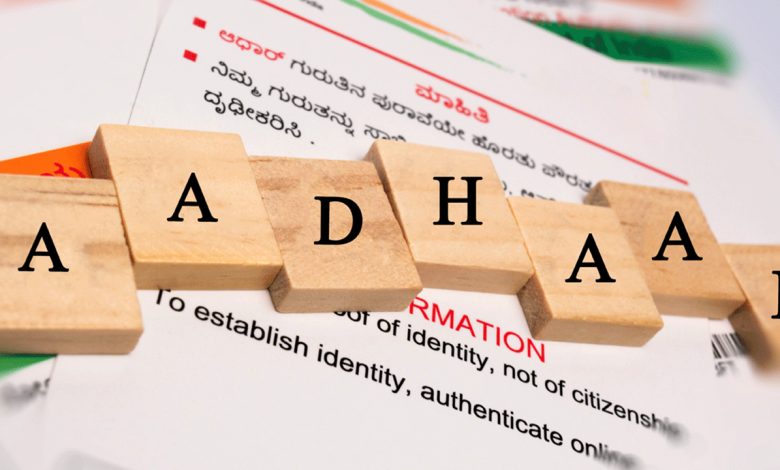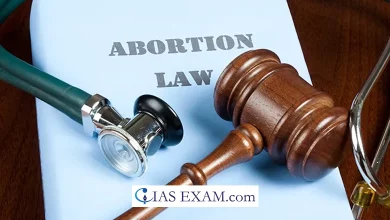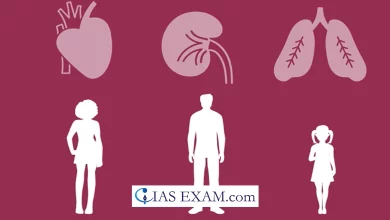Daily Current Affairs for UPSC
Aadhaar-based MGNREGS payments
Syllabus- Government Policies and Interventions [GS Paper-2]

Context- NREGA Sangarsh Morcha, an umbrella organization of workers, appealed to the government to reconsider the Friday deadline for Aadhaar-based payments for Mahatma Gandhi National Rural Employment Guarantee Scheme (MGNREGS) workers, claiming that the proportion of MGNREGS workers eligible for the payment system remains below 50% and that the entire program will collapse as a result of this rule.
Key Highlights
- The government had given unique orders on January 30 this year making Aadhaar-based installment framework (ABPS) obligatory for all MGNREGS laborers from February 1.
- The deadline was extended to March 31 as a result of protests.
- The Ministry of Rural Development (MoRD), will not further extend the deadline.
- Prior to now, MGNREGS had two payment options for its flexible wage payment system: “Aadhaar-based” payments and “Account-based” payments, also known as regular bank transactions.
- In the past few years, significant issues have arisen with the ABPS, which is a cumbersome, complex, and unreliable system.
Issues related to Aadhaar-based MGNREGS payments
- Mahatma Gandhi National Rural Employment Guarantee Scheme (MGNREGS) has been harshly criticized for a long time by the current administration.
- Payment delays, technological imposition, and a lack of funds have deteriorated the UPA legacy program, which has not been eliminated.
- For instance, the Centre has not yet cleared thousands of crores worth of wages in Rajasthan and West Bengal.
- Nearly 80% of Maharashtra workers who haven’t completed the necessary paperwork will be affected by the new Aadhaar-based payment system (ABPS). Additionally, the scheme’s budget was cut by 33% for FY24.
- Regardless of the lofty cut, the Union Rural Development Minister as of late guaranteed that the distributions were higher than whatever was given during the UPA system. In FY24, the lowest ever, the allocation represented only 1.3% of the total budget, as shown in Chart 1 below. In FY09, the share hit a high of 3.4%.
- Only ABPS would be used to pay MGNREGA beneficiaries beginning on February 1, 2023. Nevertheless, as of February 20, only 44% of India’s workforce was eligible for ABPS.
- More than half of workers were ineligible in 14 states.
- Over 60% of workers who were enrolled in the scheme in Rajasthan, Uttar Pradesh, Bihar, and Maharashtra—all of which have more than 2 crore employees—were ineligible.
- As of February 20, the percentage of State-Wide employees who were not eligible for ABPS payments is depicted in Chart 2.
- Additionally, MGNREGS experiences significant wage payment delays.
- There are two steps in the payment process.
- The first stage, which falls under the jurisdiction of the states, entails creating a Funds Transfer Order with worker information. The Centre receives this in digital format.
- The Centre is in charge of Stage 2, which involves transferring wages to the worker’s account and processing Funds Transfer Orders.
- Additionally, a number of States, including West Bengal, Madhya Pradesh, Tamil Nadu, Andhra Pradesh, Maharashtra, and Nagaland, have negative balances and are awaiting wage and material payments. They find it difficult to take on new work as a result of this.
Mahatma Gandhi National Rural Employment Guarantee Scheme (MGNREGS)
- It is a government initiative to alleviate poverty that grants citizens of India the legal Right to Work in exchange for money.
- On average, 1.5 million people work under it each day at nearly 14 million locations.
- Aim:
- By providing at least 100 days of guaranteed wage employment to every household whose adult members volunteer to perform unskilled manual labor, it aims to improve rural livelihood security.
- Funding:
- Both the Center and the States share it.
- 75% of the costs associated with semi-skilled and skilled labor, 75% of the costs associated with materials, and 6% of the costs associated with administration are borne by the Central Government.
- Currently working:
- The program currently has 15.51 crore employed workers enrolled.
Features:
Right to Work Under Law:
Adult members of rural households have a legal right to employment under the Act.
- Women:
- Women must account for at least one third of beneficiaries. Compensation should be paid by the wages determined for rural workers in the state under the Base Wages Act, 1948.
- Time-Bound Guarantee of work:
- An “unemployment allowance” must be granted if employment is provided within 15 days of being demanded to fail.
- Decentralised planning:
- Planning, carrying out, and keeping an eye on the works that are done are primarily the PRIs’ responsibilities.
- Gram Sabhas should prescribe the works that are to be embraced and somewhere around 50% of the works should be executed by them.
- Responsibility and Transparency:
- There are arrangements for proactive exposure through wall works, Resident Data Sheets, The board Data Frameworks and social reviews (directed by Gram Sabhas).
Way Ahead
- Enhancing the financial management system, which includes transferring funds to the states on a regular basis and promptly releasing funds to the agencies in charge of implementation.
- Enhancing the implementing agencies’ administrative capacity and accountability.
- Working on the straightforwardness and effectiveness of the compensation installment process, including the utilization of computerized instruments and stages to follow installments and forestall delays.





.png)



